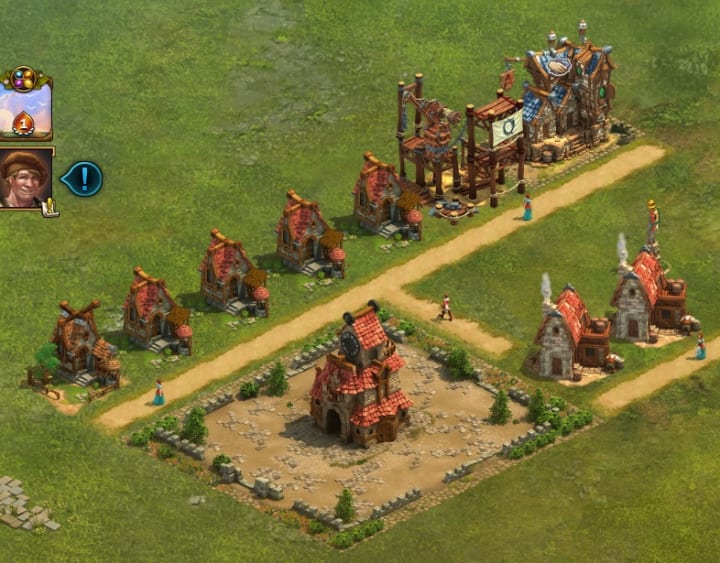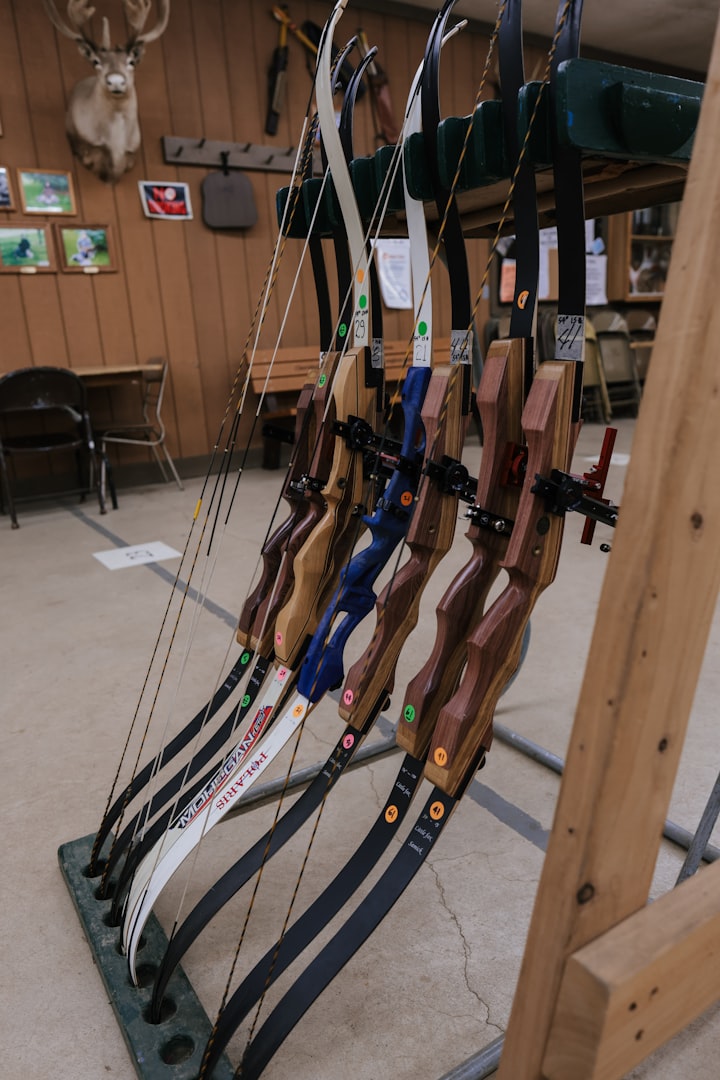In Defense of "Elvenar"
Casual gaming done well

Once upon a time, I was a true gamer. I had the two-monitor set-up, unlimited Internet access through my cable company, multiple characters across multiple worlds on my favorite games. The first thing I did when I got home was fire up one of the several games that I enjoyed. Over the years, I played Ultima Online, Everquest, Worlds of Warcraft--pretty much any fantasy MMPORG that was popular at the time. On occasion, I'd relax with single-player city building games or virtual pet games like ShowDog.com or PonyIsland (the cute one, not the demon one). I even briefly played Forge of Empires (FOE), a browser-based free-to-play strategy game. I could play a solitary game or I could have limited interaction with other players, so it was a perfect blend of play styles for casual gaming.
Then I moved to the country.
Gaming, in virtually every manner I'd ever played, came to a screeching halt. No cable! How was I to survive? Without cable, I had no unlimited Internet access. Game playing was suddenly very expensive. It turned out that working online was more important than playing online, so my limited access was going toward paying bills, as well as to streaming one or two television programs each night when it was time to relax.
Enter "Elvenar"
FOE had looked interesting in the television ads. In the beginning stages of the game, it was. I enjoyed the lower levels, when the city building took place in pre-history and in early history. Afterwards, when the game became more of a science fiction-based game, I enjoyed it less. If I want to play a science fiction-based game, that is what I will play. Because progression was inevitable--and rapid--in FOE, I put it aside.

In 2015, InnoGames also released Elvenar. While similar to FoE, Elvenar allowed a player to progress more at his or her own pace. Some players have not "finished" the game in almost ten years. Others speed through as quickly as the game allows, having several cities at different stages of progression. It is up to the player to decide whether to engage in the slower, solitary game or if the speedier team play is right for them. The decision isn't final, so the player can move in and out of fellowship teams as the need arises.
Elvenar had many of the elements that I had found appealing in the early stages of FOE: the ability to play at one's own pace, the city building and development, the medieval feel. I played both races, humans and elves, on different servers. I joined a couple of fellowships--cooperative groups of up to 25 players who participate in events and trades with each other. I left one because the "archmage" (the leader of the group) used a spreadsheet to gauge participation (!), but for the most part I found it fun. The quests provided by NPC guides kept me chugging through the technology tree, which in turn helped my cities grow. The "revolving quests," which could be done repeatedly, helped earn gold and other resources. Occasional minigame events helped build a stock of special buildings that provided even more resources. Even though it was a relatively new game, Elvenar had many elements to keep me engaged. Unfortunately, after about six months in the game, Life Happened. I tearfully said goodbye to my fellowship friends and closed my cities for the final time.
Rediscovering Elvenar
In 2022, I found myself in need of a new pastime. For whatever reason, I decided to try a couple of free-to-play games again, of which Elvenar was one. Boy, had the game changed! Ancient Wonder building to give bonuses and boosts! The "Spire of Eternity," to give time boosts, magical buildings, and game currency! The tournament, to give spells and recipes for crafting! Fellowship Adventures, to enhance teamwork and bring recognition to group efforts! It was practically a whole new game! Even some of the things that had been introduced before I left were a little new and different. A good fellowship can make a world of difference to a new player. Mine was a bit too casual for mentoring, so once I had been playing for a few months, it was off to a more active fellowship.

The Technology Tree
The foundation of the game is the "technology tree," most often called the "tech tree." The tech tree is currently divided into 21 chapters, although Inno is hinting that another one might be added later this year. The player is tossed into Chapter One with no skills, no player points, and no boosts, magical or otherwise. From the very beginning, the game provides a series of guides that provide "quests," simple actions that teach the player the basic skills of the game, while offering rewards to help them along. Early quests help the player zip through Chapter One.
Knowledge Points: The only thing a player is given to get started is a few "knowledge points." A certain number of knowledge points is required to complete every technology, from just a few in the early chapters, to hundreds at a time in the later ones. One point is given passively per hour, up to a limit of ten. A total of twenty points may be passively accumulated using an enchantment, but as many points as the counter will bear can be accumulated through combat, events, and special buildings.
Gold: Gold can be accumulated in a number of ways: selling buildings, taxing the city residents, and completing quests are the most frequent. Gold is also available through "neighborly help," a task that raises gold both actively and passively, through other players' actions. With the exception of training troops and creating resources, gold is needed for virtually every action in the regular game.
Resources: Like gold, resources are part of almost every function in the game. And, also like gold, they can be accumulated through building sales and through giving neighborly help.
Goods: While a player who focuses on game combat won't use as many goods, they are still required to build certain structures and to progress through the technology tree. All players have access to the same nine basic goods when they enter the game; however, each player is given a set of "boosted" goods that will determine the course of their city's progress over time. The "wholesaler," will sell all goods other than the boosted goods to the player, but they are easier to accumulate through trade with other players. Goods are the only things in the game that players can actively trade with each other. Goods cannot be passed directly between players but must go through the trader.
The Main Events: Tournament, Spire, and Fellowship Adventures
Tournament: Almost every fellowship a player can join requires participation in the tournament. Not only does the tournament offer magical boosts and knowledge points to the individual player, but the fellowship status also benefits from regular tournament success. The tournament is currently the only source for "recipes," the resource needed to improve magical and special buildings. Participation in the tournament is available when the player reaches Chapter Four.
Spire of Eternity: The Spire offers two paths to success. For players who prefer a combat-oriented game, it is possible to fight the "spirits" all the way to the top reward. People who prefer not to fight can trade goods with the spirits using a three-part logic puzzle to determine which spirit wants which of the listed goods. The Spire becomes available in Chapter Five.
Fellowship Adventures: Access to fellowship adventures comes shortly after the player is able to join a fellowship, in Chapter Two. The "FA" mini-game takes place several times a year. Individual rewards are meager, usually consisting of time boosters, special buildings (or the means of enhancing them), and a Ferris wheel that produces one of four spells of the player's choice daily or every other day until the building expires. Fellowship adventures exist primarily to get fellowships members to work together in order to improve their group's game rank.
Other "Stuff"
A lot of other things are introduced through the tech tree along the way, but there's no way to write about all of them here. All of these things are important milestones that affect the player's game over his or her lifespan in the game. Crafting, one of the most useful game skills, allows the player to create spells and special buildings from "spell fragments" and "combining catalysts," is offered in Chapter Three. The Cauldron, which some players find useful for various boosts, is available in Chapter Five. Individual quests are offered in each chapter to help the player determine his or her correct course of action.
The Further Adventures of Yaddle Skedaddle
Eventually, I found a welcoming fellowship with a really active group of players. We were active in all of the things that my previous fellowship had not been. I learned a lot about what I liked to do in the game (crafting, trading, climbing the Spire) and what I did not care for as much (tournament, fellowship adventures). I adapted my game so that I had more resource buildings than I did warrior production and slowly moved my way up the points scale.

As with anything, things change. I had been with the fellowship for about a year when I found out that my archmage was very ill. She had cancer, with only a few months to live. After she left the game to spend more time with her family, her second in command took over. It was, again, a whole new game. We lost a lot of good fellowship members during that time and I became archmage after the second in command abandoned ship. I thought I was a decent archmage, but I found that leadership was not for me. When one of the players with an older account started making rumblings like he would be a better leader, I happily handed it off and went to other pastures. That's one of the things I like best about this game. Leadership is designed to be fluid. So is the fellowship system. Each fellowship attracts different kinds of players. Some may be more active in the tournament. Some may focus on teamwork, while others are a loose collection of people doing their own thing. The developers have made it easy for players to find a place where they belong, no matter what their playstyle.
Not Perfect, but Really, Really Close
Is the game perfect? No, of course not. The developers often do things that people don't like. These changes frequently make the game more challenging, although at times they are made to prepare for a new chapter in the game or to introduce new systems. As with this most recent change in Ancient Wonders, the developers are providing some balancing in terms of their effects and the resources and items needed to upgrade them. It will take a little time for this change to be satisfactory to both developers and players, but the conflict is has caused will likely--eventually--be resolved.
No matter what the player's style, he or she should settle in for the long game. Elvenar is not a game that can be finished in a month or even in a year. As time goes on, the chapters become more challenging and require more than just building or upgrading buildings to move on. New things are constantly being introduced, keeping the game fresh even as the player is required to create dozens or hundreds of a particular item to satisfy a quest. I have been playing for almost two years and am rarely bored with any single thing going on.
Hardcore gamers will probably not be satisfied with Elvenar or any other free-to-play game. However, if you are tired of the old "match these items to progress through a level" games, but still want a relaxing game to play, then Elvenar might be worth a look. It can be found at: www.elvenar.com. It is completely free to sign up and play, although in-game items can be purchased with real-life money to make game play easier. Please feel free to add any questions or comments below.
About the Creator
Kimberly J Egan
Welcome to LoupGarou/Conri Terriers and Not 1040 Farm! I try to write about what I know best: my dogs and my homestead. I currently have dogs, cats, dairy goats, quail, and chickens--and in 2025--rabbits! Come take a look into my life!






Comments
There are no comments for this story
Be the first to respond and start the conversation.